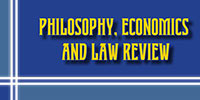Tetyana TESLENKO
Ph.D. (Economics), Associate Professor (Private Higher Educational Institution “Dnipro University of the Humanities”), Ukraine
ORCID iD: orcid.org/0000-0002-5810-3569
c.spas.dp@i.ua
Cameron BATMANGHLICH
Ph.D., M.Sc., PGCHEP, Professor of Leadership and Ethics (Varna University of Management), Bulgaria
ORCID iD: orcid.org/0000-0003-2050-4946
cameron.batmanghlich@gmail.com
Oleh ROMANKO
Senior lecturer (Private Higher Educational Institution “Dnipro University of the Humanities”), Ukraine
ORCID iD: orcid.org/0000-0001-8438-5961
22oleg90@gmail.com
UDC 658: 005.336.1
DOI: 10.31733/2786-491X-2021-2-56-67
Keywords: lean production, Toyota, operational perfection, productivity, achievement of success
Abstract. The relevance of the study of the lean production is of great importance, as its implementation demonstrates new methods of management of all production and logistics processes aimed at achieving quality, successful use and a number of means of their application after World War II. The article analyzes the Toyota Production System, which formed the basis of dozens of books on “lean production”. The purpose of the article is the theoretical and practical principles of Toyota lean production as an integrated management system and achieving operational excellence as a condition for success in its application in the automotive industry both in production and services. Objectives of the study: 1. To find out the definition of value and the flow of their creation as a set of actions aimed at forming frugal thinking. 2. To form the concept of lean production as a strategy of perfection. 3. To reveal the global significance of “Toyotaʼs philosophy” as the most profitable industry among car manufacturers. 4. To investigate the Toyota Production System as a foundation for lean thinking and frugal production. This goal determined the application of general scientific methods – analysis, synthesis, comparison, induction and deduction, scientific abstraction, analogies and scientific generalizations, logical and historical analysis in the framework of systemic and cross-cultural approaches, forecasting and modeling, literature review of scientific sources. It has been proved that lean production is one of the brightest examples of the “Japanese miracle”, the basic principles of which include: determining the value of a good or service for the consumer; determining the flow of value creation; loss control; ensuring the continuity of the flow of value creation; “Extraction” of production; constant improvement. The authors, using the experience of working with leading companies in the United States, Germany and Japan, including Pratt & Whitney Porche Tesco, note that the principles of lean production have allowed them to: to increase productivity almost by two times; speed up the release time; halve production space; reduce inventories with virtually no financial loss. The practical significance of this topic is that economical production as a philosophy of “Toyota” guarantees the effect and success of many companies and manufacturers.
References
- Buhaichuk, O. (2019). Strategies of information and innovation activity development at enterprise in digital conditions. Zaporizhzhia National University, 1(78), 75-85.
- Cherep, A., Voronkova, V., Andriukaitiene, R., & Nikitenko, V. (2020). The concept of creative digital technologies in the tourism business in the conditions of digitalization. Zaporizhzhya National University, 5(82), 196-209. (in Ukrainian).
- Drucker, P. (2000). Management tasks in the XXI century. Moscow. (in Russian).
- Goodman, M. (2019). Crimes of the future: everything is interconnected, everyone is vulnerable and what we can do about it. Kyiv: Ranok, Fabula. (in Ukrainian).
- Jurgen, A. (2019). Management 3.0. Agile management. “Leadership and management of teams”. Kharkiv: Ranok, Fabula.
- Liker, J. (2019). Philosophy of Toyota. 14 principles of a good command. Kyiv: Our format. (in Ukrainian).
- Melnik, V. (2019). Agile-management 3.0 concept as a factor of technological progress development in the digital society. Zaporizhzhia National University, 1(78), 130-139. (in Ukrainian).
- Michio, K. (2017). Physics of the future. Lviv: Litopis. (in Ukrainian).
- Nesterenko, O., & Oleksenko, R. (2020). Social philosophical reflection of the individual legal education philosophy as the basis for the democratic society functioning. Zaporizhzhia National University, 4(81), 165-181. (in Ukrainian).
- Nikitenko, V., Andriukaitiene, R., & Punchenko, O. (2019). Formation of sustainable digital economical concept: challenges, threats, priorities. Zaporizhzhia National University. 1(78), 141-153. (in Ukrainian).
- Punchenko, O., Voronkova, V, & Vodop’yanov, P (2021). Care as a global problem of humanity and its relationship with other global problems. Humanities studies: Collection of Scientific Papers. Zaporizhzhia National University, 7(84), 39-47, https://doi. org/10.26661/hst-2020-7-84-05. (in Ukrainian).
- Teslenko, T. (2020). Theoretical foundations of philosophy of economics in the context of new enlightment worldview 2.0, Trebisov, Slovenska republika.
- Teslenko, T. (2021). Science-epistemological evolution of the understanding-category apparatus of the philosophy of the economy as a new philosophical knowledge. Humanities studies: Collection of Scientific Papers. Zaporizhzhia National University, 4(81), 126-144, http:// humstudies.com.ua/article/view/209399. (in Ukrainian).
- Teslenko, T., & Zadoia, V. (2021). Breakthrough technologies as a factor of formation of information economy in the conditions of digitalization. Humanities studies: Collection of Scientific Papers. Zaporizhzhia National University, 7(84), 48-57, http://humstudies. com.ua/article/view/234351. (in Ukrainian).
- Voronkova, V., & Teslenko, T. (2020). Formation and development of digital technologies as a factor in the implementation of the fourth industrial revolution. Journal of the Belarusian State University. Philosophy. Psychology, 2, 4-11, https://journals.bsu.by/index.php/ philosophy/ issue/view/211. (in Russian).
- Voronkova, V., Teslenko, T., Nikitenko, V., & Bilohur, V. (2020). Impact of the worldwide trends on the development of the digital economy. Amazonia Investiga, 9(32), 81-90. https://www.amazoniainvestiga.info/index.php/amazonia/issue/archive.
- Winchester, S. (2019). Perfectionists. How engineers created the modern world. Kharkiv. (in Ukrainian).
- Womack, J., & Jones, D. (2019). Lean production. As a manufacturing system, Toyota will help prevent material loss and ensure the prosperity of your company. Kharkiv: Ranok, Fabula. (in Ukrainian).
- Womack, J., Jones, D., & Rus, D. (2017). A machine that changed the world. The history of line production – Toyota S dark weapons in car wars. Kyiv: Pabulum, Lean Institute Ukraine. (in Ukrainian).
- Zhuravel, K. (2019). Concept of flexible management at enterprise in digitalization and lean production conditions. Zaporizhzhia National University, 1(78), 98-107. (in Ukrainian).
